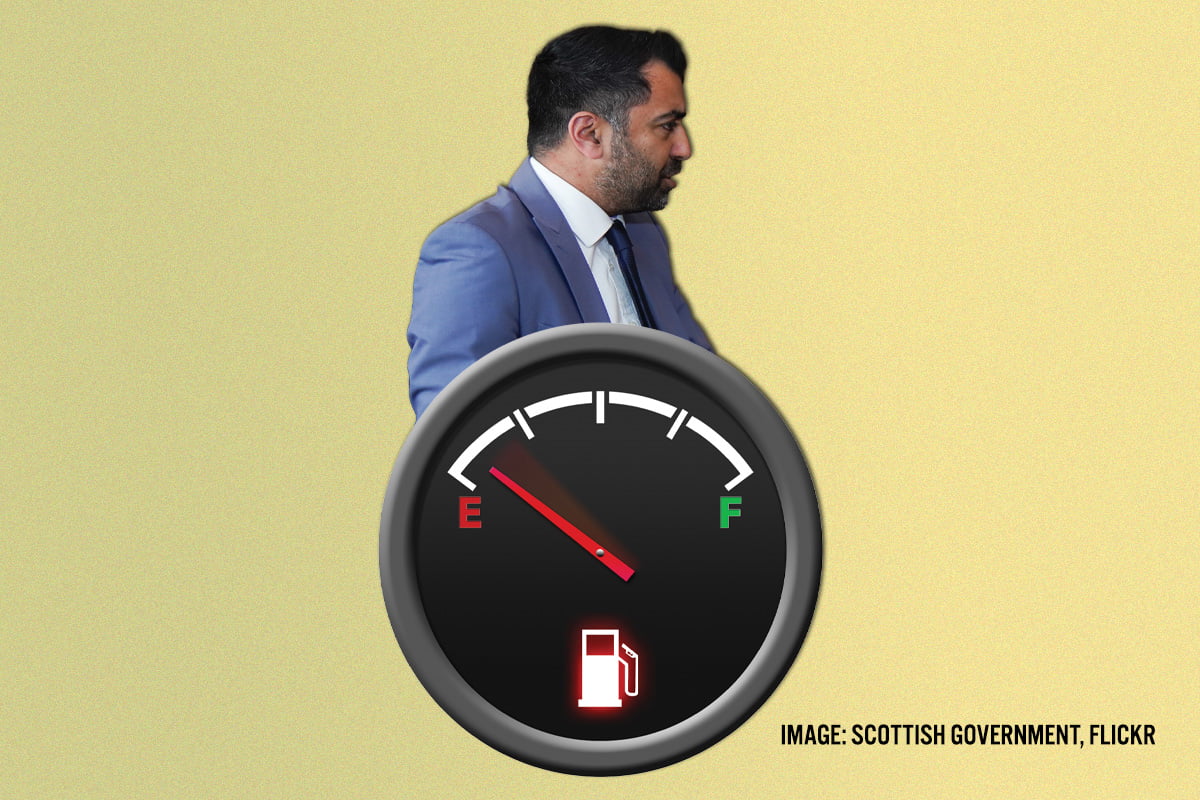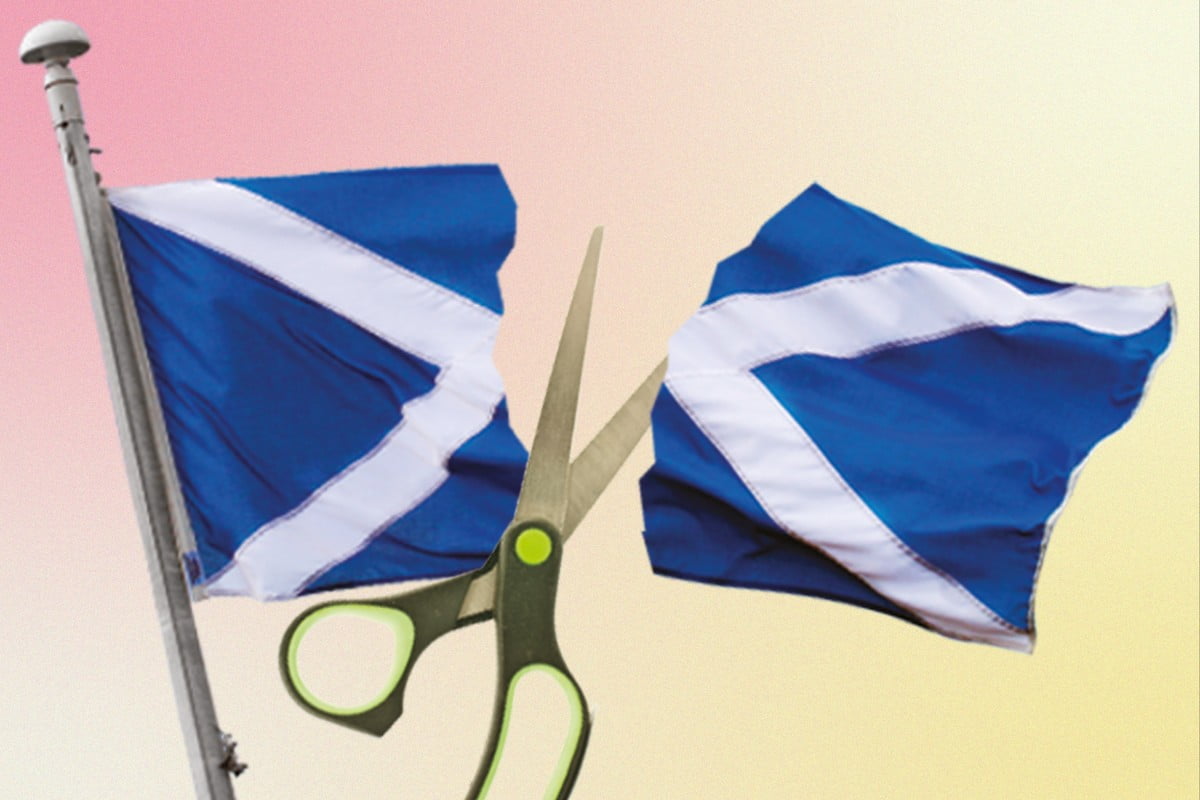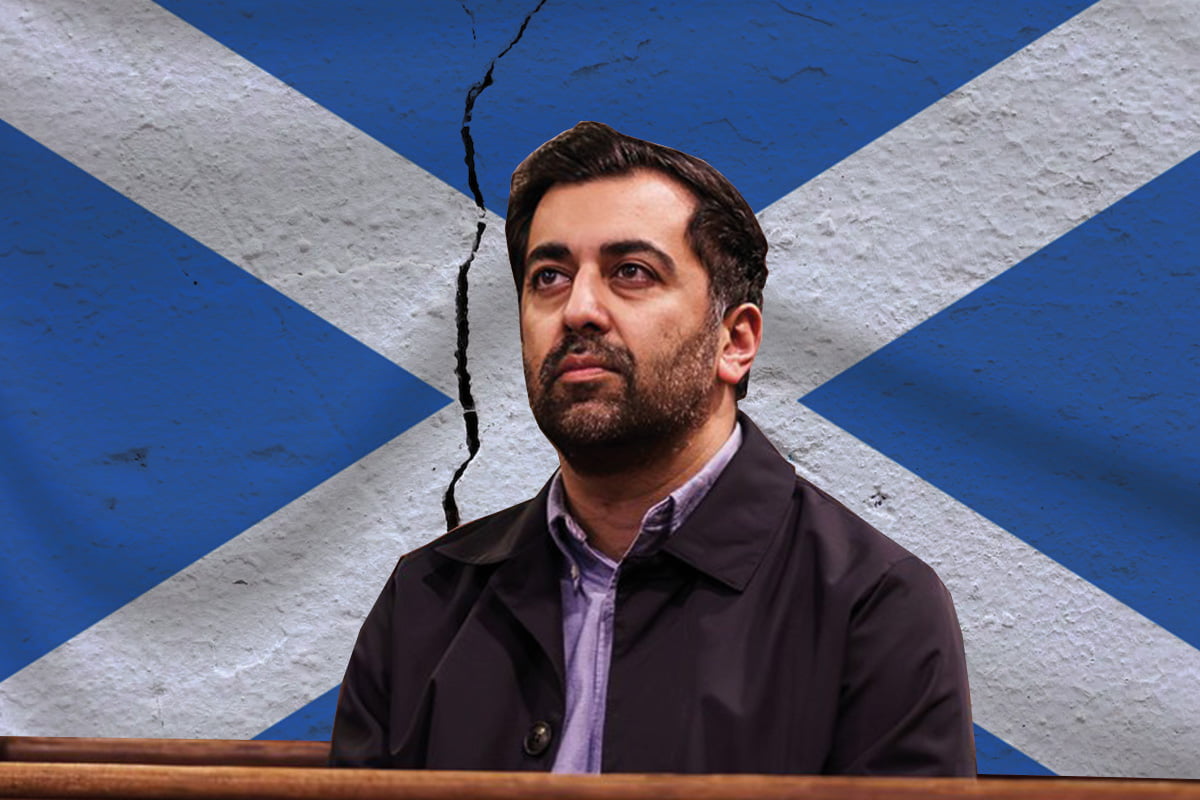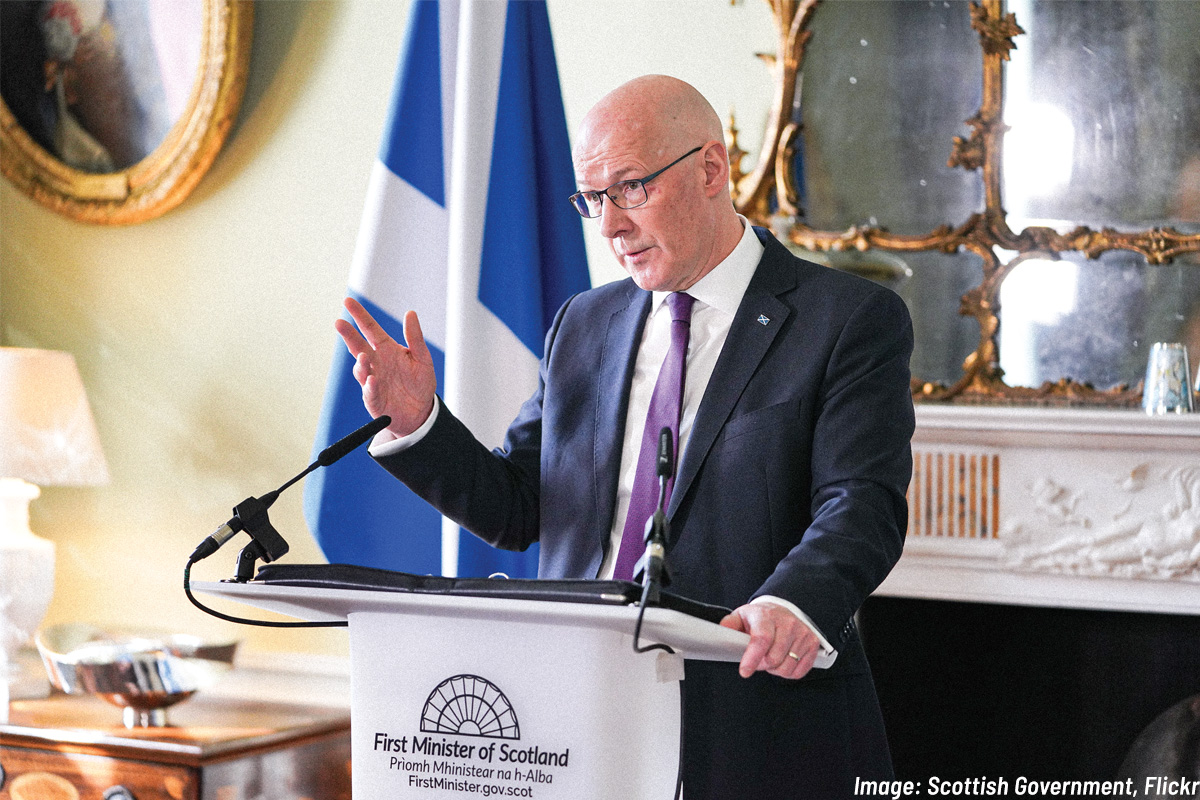The 2021 Bute House Agreement in Scotland led to the formation of the first government within the UK to include Green ministers. Now it has been unceremoniously torn up by Scottish First Minister and SNP leader Humza Yousaf.
This marks a “reset” for the Scottish government, according to Yousaf. But all we see is the growing crisis within Scotland’s governing party, the SNP.
No confidence
Early on Thursday morning, the two Green ministers in Holyrood, Patrick Harvie and Lorna Slater, were summoned to the First Minister’s residence to be given the bad news. Just a few days prior, Humza Yousaf had defended their role in government, so this must have come as a surprise.
The Scottish Greens have reacted furiously, condemning the First Minister for “political cowardice”, and surrendering to “reactionary, backward-looking forces” within the SNP. They see Yousaf’s move as a rightward shift, abandoning the “progressive” platform the parties have shared over the last three years.
In a speech, typical in its monotonous insincerity, Humza Yousaf thanked the Greens, but said their partnership was no longer working. The “balance has shifted”; it is time for the SNP to run a minority administration, as they have previously, the First Minister stated.
Ironically, Yousaf claims to have made his decision in the interests of seeing a “stable government”. But it has resulted in a vote of no confidence being tabled against him and his government, which the Greens could use to bring down the SNP.
Culture war
The SNP and the Scottish Greens have long been allies, campaigning together in the 2014 independence referendum, and agreeing a parliamentary confidence-and-supply deal in 2016.
The parties drew even closer with the signing of the Bute House Agreement in 2021, forming their first coalition government. This was continued after Humza Yousaf became SNP leader and First Minister last year.

Speculation surrounding the future of the SNP-Green coalition had been growing after the Scottish government announced it would abandon its greenhouse gas emissions targets, citing the legally-binding 2030 deadline as unachievable. For several years, Scotland has failed to meet these targets, which are essential to the objective of net-zero by 2045.
Additionally, there have been calls from within the SNP ranks to break with the Greens. Some in the party have blamed their coalition partner for costing the SNP its popularity by pursuing reforms on transgender rights, hate crime, sexual assault trials, and assisted dying.
The ‘culture war’ that has been whipped up around these questions divides many in the SNP, driving a wedge between them and the Greens.
The Greens had called an emergency general meeting of their party to decide if they should stay part of the government, which appeared to be genuinely uncertain. Rather than wait to see if the Greens would jump, Yousaf has given them a push.
Dead end
Green leaders Harvie and Slater now say they cannot support the First Minister. They complain that the “progressive” agenda they once shared would now be “watered-down, delayed, and under-funded”.
The truth is that this describes the entire history of the SNP and Green alliance, which has promised much but delivered little.
Now, with the crisis in public services, the rising cost of living, and a stagnant economy, the SNP are running out of options.
Many people see the Scottish government pushing cost-free social reforms, while bread-and-butter problems are left to fester. From the year-and-a-bit that Humza Yousaf has led in Holyrood, it is clear that nothing is on offer for the working class but more austerity.
Even the SNP’s raison d’etre, independence, has hit a complete dead end. Yousaf and his party have no strategy or plan. And for many, the issue is no longer as pressing as the decay of the NHS, schools, and local councils.
All of this is unravelling the SNP’s dominant position in Scottish politics, and provoking internal splits.
Crisis and collapse
Yousaf’s decision to spurn the Greens in order to appease the conservative wing of his own party has backfired, threatening to collapse the Scottish government and trigger an early election.
As much of the press have pointed out, the First Minister is now beholden to a single ex-SNP MSP, Ash Regan, who resigned from the party last year after losing the leadership election to Yousaf.
Regan is a member of the Alba Party, led by Alex Salmond, who has gone from being the leader and statesman of the SNP to the party’s nemesis.
Alongside SNP right-wingers like Katie Forbes (also a former leadership contender) and Fergus Ewing, Regan is calling for the SNP to ditch its liberal policies and get back to “supporting business” and economic growth (i.e. the growth of big business profits).
These figures also want the party to ditch unpopular green policies, such as marine conservation areas, low-emission zones, and reforms to domestic heating.
Austerity and instability
Yousaf could save himself by conceding to Regan’s demands, and his internal opponents. But this would come at the cost of washing off the last traces of the SNP’s “progressive” veneer.
Even if he manages this, however, there will be no return to the stability of the Sturgeon years. With no unifying figure or programme at the centre of the SNP, the split between the liberal and conservative wings of Scottish nationalism will only become wider.

The SNP has governed in Scotland for over a decade, in opposition to the Tory regime now in a state of collapse.
While implementing the austerity cuts passed down from Westminster, for a period they were able to ensure that at least a few crumbs could be given to the working class via Holyrood. But now the SNP has nothing left to give, and are suffering as a result.
Join the communists!
The demise of the Bute House Agreement came as suddenly as Nicola Sturgeon’s resignation last year. This underlines that Scotland – and the whole world – are living through an era of profound instability and political shocks.
In Scotland, as elsewhere, we are in a period of sharp turns and sudden changes. This latest episode is clear evidence of this. There is no way out on the basis of capitalism.
It is crucial that workers and youth take a revolutionary road: casting aside all the bourgeois opportunists, and fighting for their own class interests.
We, the Scottish Communists, are facing up to the challenges, and are preparing to found the Revolutionary Communist Party alongside our comrades all across Britain, as part of the new Revolutionary Communist International.
Given the unfolding crisis, we need this party in Scotland just as anywhere else, and appeal for all communists to join us.






